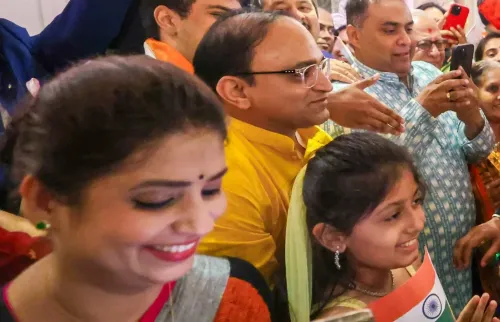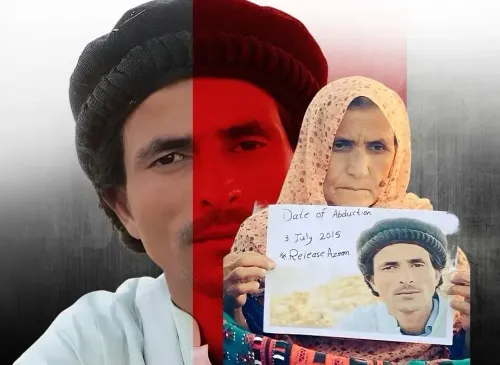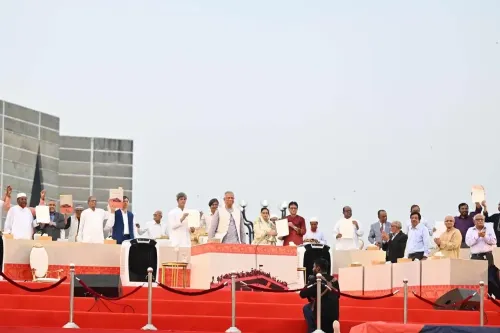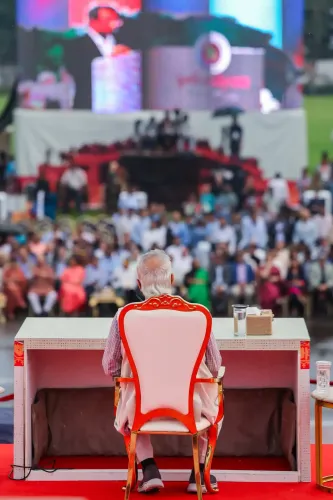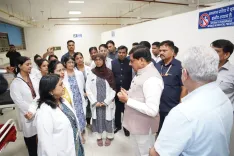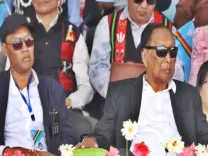Protests Erupt at Dhaka University Over Anti-Hindu Comments
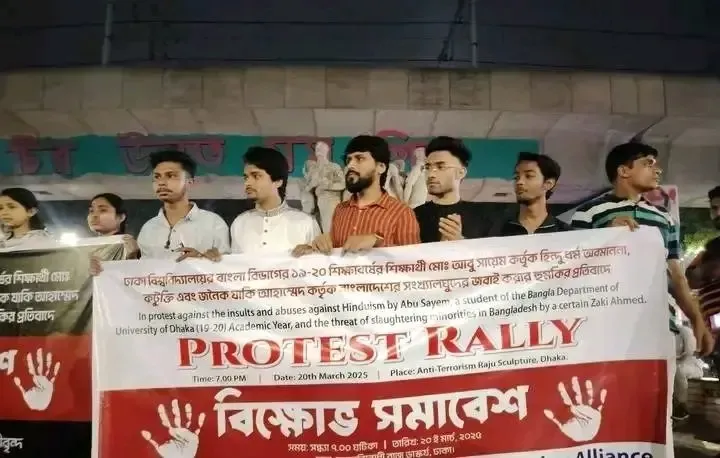
Synopsis
Key Takeaways
- Students protested against anti-Hindu remarks at Dhaka University.
- They demanded action against the accused and institutional reforms.
- Reports of violence against minorities have surged in Bangladesh.
- India has raised concerns about the safety of minorities in Bangladesh.
- Authorities are urged to protect minority religious institutions.
Dhaka, March 21 (NationPress) A collective of students from Dhaka University (DU) representing the 'Hindu Students of Dhaka University' and the 'Bangladesh United Sanatani Awakening Alliance' held a demonstration on campus on Friday, expressing their outrage against vulgar remarks regarding their faith.
The students are voicing their concerns over disparaging comments about Hinduism and a specific deity made by another student on social media, as reported by local media.
They are calling for the suspension and strict punishment of the individual involved, demanding the university implement measures to prevent misinterpretation of Sanatan Dharma in academic settings.
Other requests include safeguarding against teachers misrepresenting Hinduism during literary analysis classes and addressing derogatory remarks aimed at minorities on the university's 'Dhaka Bissobiddaloy Shikkharthi Sangsad' Facebook group, according to Bangladesh's prominent newspaper, The Daily Star.
The accused, Md Abu Sayem, a student from the Bangla Department at Dhaka University, has reportedly made ongoing offensive remarks about Hinduism, provoking distress within the university's Hindu community and the broader population in Bangladesh.
Some demonstrators expressed their frustration, asserting that their religious beliefs are not being honored, while questioning the lack of action taken when minority faiths are insulted, as reported by the Dhaka Tribune.
Numerous rights organizations, distinguished citizens, and socio-cultural groups in Bangladesh have previously condemned violence specifically targeting Hindus in various regions of the country following the ousting of former Prime Minister Sheikh Hasina.
A report from the Dhaka-based human rights group, Ain O Salish Kendra (AsK), documented a total of 147 incidents involving the vandalism of homes, temples, and businesses belonging to the Hindu community nationwide.
These incidents involved the vandalization of 408 households, including 36 arson cases. Moreover, there were 113 instances of business establishments owned by minorities being vandalized, 32 attacks on temples and mosques of the Ahmadiyya sect, and 92 incidents of idol desecration across 92 temples.
In September 2024, the prominent daily Prothom Alo reported a surge in attacks on minority communities, particularly targeting Hindus, after the fall of the Awami League government led by Hasina.
In many regions, the homes, businesses, and religious sites of Hindus, Christians, and Buddhists have faced severe damage and even arson.
Bangladesh has been facing ongoing violence and demonstrations across the country since the interim government led by Muhammad Yunus assumed power.
The plight of minorities has significantly deteriorated under the Yunus-led interim administration, with alarming reports of increased gang rapes, murders, and desecration of places of worship for Hindus, Christians, Buddhists, and other minority groups.
India has repeatedly expressed concern regarding the treatment of Hindus and other minorities in Bangladesh.
“We have consistently emphasized that it is the duty of the interim government in Bangladesh to safeguard Hindus and other minorities, along with their properties and places of worship.
According to reports, only 1,254 out of 2,374 reported incidents between August 5, 2024, and February 16, 2025, have been confirmed by the police. Notably, 98 percent of these verified incidents were categorized as politically motivated. We expect Bangladesh to conduct thorough investigations and hold accountable all perpetrators of violence, arson, and killings without making political distinctions,” stated Randhir Jaiswal, spokesperson for the Ministry of External Affairs (MEA), during a media briefing in New Delhi earlier this month.

